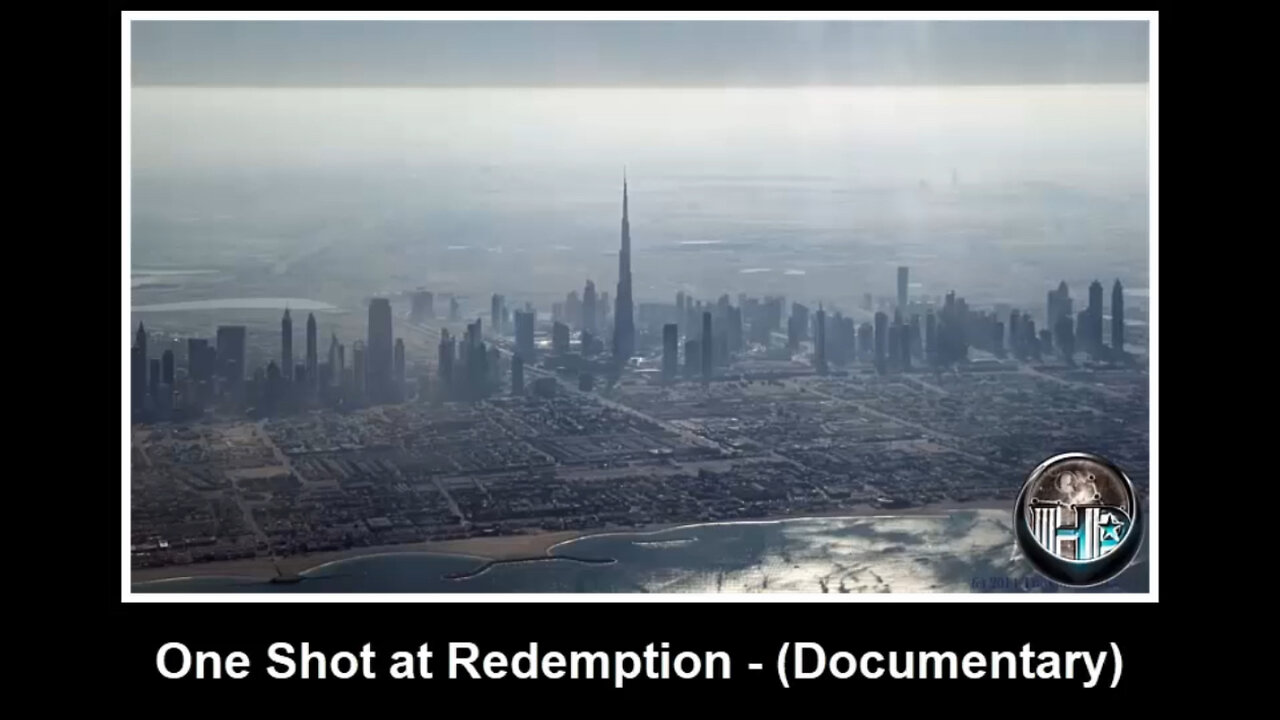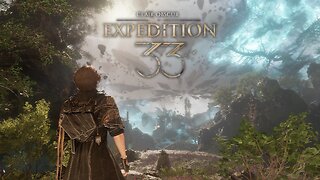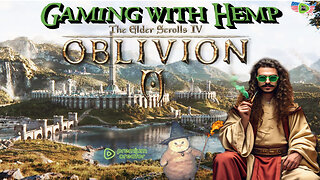Premium Only Content

The Crisis of Knowing: Why Certainty is an Illusion in the Age of Assumed Truths
We live in an era where information is abundant, yet certainty remains elusive. Conversations about fundamental questions—such as the shape of the Earth—often expose a deeper crisis: the fragility of our confidence in what we “know.” It’s not just a debate about curvature or perspective; it’s a profound exploration of how belief, perception, and authority intersect to shape our understanding of reality.
When someone is asked to prove the Earth is round, the responses are revealing: vague appeals to education, reliance on institutional authority, or a shrug of acceptance. This isn’t necessarily ignorance—it’s the result of a culture that discourages firsthand exploration of foundational questions. To confront this, we must go beyond the surface of such debates and examine the deeper mechanics of knowledge and belief.
1. The Fragility of Knowledge Without Direct Experience
Most of what we consider “knowledge” is secondhand. We rarely verify the truths we accept. For example:
• We believe the Earth is round because we’ve seen photos, read textbooks, and trust scientific authorities.
• Yet, how many of us have directly observed evidence of this claim in a way that leaves no room for doubt?
This creates a precarious dynamic: our understanding of reality rests not on personal verification but on collective trust. When that trust is challenged—by skeptics questioning the evidence or offering alternative models—we find ourselves unprepared to respond meaningfully.
The Limits of Heuristic Thinking
We rely on heuristics, mental shortcuts that simplify complex questions. If “everyone” says the Earth is round, it must be true. This approach works in practical terms, but it leaves us vulnerable to doubt when the foundation of collective agreement is shaken.
The question isn’t whether the Earth is round or flat; it’s why we so often fail to interrogate the assumptions underpinning our beliefs.
2. Authority and the Construction of Reality
Knowledge in the modern age is mediated by authority. Governments, scientists, and media institutions act as gatekeepers, filtering what is deemed valid. This creates a dynamic where:
• Truth is accepted not because we experience it directly but because it has been certified by trusted sources.
• Dissenting perspectives, regardless of merit, are often dismissed as conspiratorial or pseudoscientific.
But what happens when these authorities are questioned? The reflexive dismissal of alternative viewpoints reinforces the perception that mainstream narratives are dogmatic rather than empirically grounded.
The Role of Education
Our educational systems teach us what to think more than how to think. From a young age, we’re handed answers to questions we’ve never asked. For example:
• We’re told the Earth is a sphere, shown diagrams, and asked to memorize facts—but rarely are we encouraged to explore the evidence for ourselves.
This creates a passive relationship with knowledge, where we trust authority rather than engage in independent inquiry. When skeptics challenge this paradigm, it forces us to confront the unsettling realization that much of our “knowledge” is unexamined belief.
3. The Psychological Comfort of Consensus
Humans are social creatures, and consensus provides psychological comfort. To question widely accepted truths is to risk ostracism and uncertainty. This explains why debates about the Earth’s shape—or any foundational question—are often met with ridicule rather than curiosity.
The Fear of Being Wrong
Doubt threatens our sense of identity. If we admit we might be wrong about something as fundamental as the shape of the Earth, what else might we be wrong about? This fear leads many to cling to consensus narratives, even when they lack the tools to defend them.
The Illusion of Progress
Modern society prides itself on scientific progress, yet this progress is often built on layers of assumptions. When skeptics highlight inconsistencies or gaps in mainstream narratives, they challenge not just individual beliefs but the broader narrative of human advancement. This is why debates about these topics often provoke emotional, rather than rational, responses.
4. The Importance of Intellectual Humility
True inquiry begins with the admission that we do not have all the answers. Both proponents of mainstream science and skeptics of established narratives can fall into the trap of certainty. To move forward, we must embrace intellectual humility:
• Recognize that our understanding is always incomplete and subject to revision.
• Approach dissenting perspectives with curiosity rather than dismissal.
The Danger of Certainty
Certainty is the enemy of exploration. When we believe we already know the truth, we stop asking questions. This applies equally to those who assert the Earth is round without examining the evidence and those who claim it is flat without engaging critically with counterarguments.
5. Toward a New Paradigm of Inquiry
What if we reframed debates like this not as battles over who is “right” but as opportunities to explore the process of knowing? Instead of arguing over conclusions, we could focus on:
• Methodology: How do we verify what we believe to be true?
• Perception: How do our senses and biases shape our understanding of reality?
• Authority: How do we balance trust in experts with personal inquiry?
Such an approach would shift the conversation from confrontation to collaboration, fostering a culture of shared exploration.
6. The Role of Skeptics in Advancing Knowledge
Skeptics play a vital role in challenging complacency. By questioning foundational assumptions, they force us to confront the limits of our understanding. Whether or not their claims are correct is secondary to the value of the questions they raise.
Examples of Productive Skepticism
• Historical scientific breakthroughs often began as dissenting perspectives. For instance, heliocentrism was once a fringe idea dismissed by the scientific consensus.
• Modern skepticism, whether about the shape of the Earth or the origins of the universe, serves as a reminder that no narrative is immune to scrutiny.
Conclusion: Embracing the Unknown
The debate over Earth’s shape is not merely a question of science; it is a microcosm of our struggle to navigate a world where truth feels increasingly elusive. It challenges us to:
• Reexamine the foundations of our beliefs.
• Question the role of authority in shaping our understanding.
• Embrace intellectual humility and the spirit of inquiry.
In the end, the goal is not to prove or disprove any single claim but to cultivate a mindset that values curiosity over certainty, dialogue over dogma, and exploration over indoctrination. By doing so, we can transcend the limitations of inherited knowledge and move closer to a deeper understanding of ourselves and the universe.
-
 1:30
1:30
FragmentsOfTruth
4 days agoThe Last Pope, the Prophecy, and the Final Judgment: Is This the End of the Age?
2221 -
 31:26
31:26
The Brett Cooper Show
2 days ago $14.75 earnedI Spoke With People Close To Justin Bieber | Episode 25
28K73 -
 1:08:48
1:08:48
Winston Marshall
1 day agoThe Damaged Generation: How Lockdown Damaged 50 Million Children For Life with David Zweig
54.1K71 -
 LIVE
LIVE
Eternal_Spartan
7 hours agoLive at 11am Central!! | Clari Obscur Expedition 33 - Possibly the Best Game of My Life?!?
117 watching -
 13:05
13:05
Cowboy Kent Rollins
1 day ago $11.91 earnedHomemade Cowboy Corn Dogs | Easy Corndog Recipe
49.6K24 -
 LIVE
LIVE
GritsGG
6 hours ago#1 Warzone Win Grind! 🔥
174 watching -
 8:24
8:24
Talk Nerdy Sports - The Ultimate Sports Betting Podcast
6 hours ago4/26/25 - Saturday Annihilation: Vasil’s 8 Sharp Picks and 2 PrizePicks Built for Blood 💥📈
52.9K3 -
 LIVE
LIVE
GamingWithHemp
5 hours agoElder Scrolls Oblivion Remastered Episode #2 Ultra high settings
105 watching -
 2:11:49
2:11:49
Rotella Games
1 day agoSaturday Morning Family Friendly Fortnite
38.6K7 -
 2:13:45
2:13:45
I_Came_With_Fire_Podcast
15 hours agoRESTRUCTURING THE WORLD- CIVICS CLASS WITH DAN HOLLAWAY
39.6K19